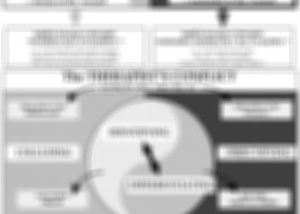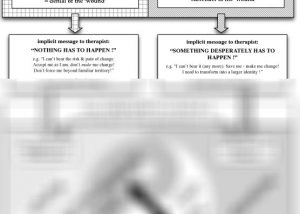This is the presentation given CONFER at the conference entitled "Enactments: are these to be welcomed or avoided?" The main aim of the presentation is the following question: If I want the enactment to become transformative of deeply ingrained, unconscious characterological patterns (which, according to one definition, [...]

What Supports the Sustainability of our Practice as Therapists? – Part 2 (2015)
Michael - Articles & Papers2017-04-07T02:55:21+00:00After some years of not writing very much, I have written a substantial article on this crucial topic: mainly based on years of supervision experience and seeing supervisees' practices struggle or flourish, I explore the key factors that influence how we process the 'emotional load' of our practice [...]

What Supports the Sustainability of our Practice as Therapists? – Part 3 (2015)
Michael - Articles & Papers2017-04-07T02:55:21+00:00After some years of not writing very much, I have written a substantial article on this crucial topic: mainly based on years of supervision experience and seeing supervisees' practices struggle or flourish, I explore the key factors that influence how we process the 'emotional load' of our practice [...]

We Are All Relational, But Are Some More Relational Than Others? (2013)
Michael - Articles & Papers2017-04-07T02:54:38+00:00Discussant Paper in response to Ray Little: "The New Emerges out of the Old - An Integrated Relational Perspective on Psychological Development, Psychopathology and Therapeutic Action”. Building on Ray Little's integration of humanistic TA with both traditional and relational psychoanalysis, this paper explores both shared ideas [...]

The Relational Paradigm Shift in Psychotherapy – is it ‘Complete’? (CABP 2007)
Michael - Presentations2017-04-07T19:07:15+00:00In a joint session with Joe Schwartz, the relational psychoanalyst, we tried to chart the history of relationality in psychotherapy, to set out the basic issues and controversies around it as an introduction to the CABP Conference "The Client and I", intended as a meeting point and dialogue [...]

The Therapeutic Position in the Conflict between Colluding and Objectifying (1997)
Michael - Handouts2017-04-07T02:58:56+00:00This handout is the original formulation how the client's internal conflict necessarily puts the therapist in conflict. The client's chronic conflict is formulated here in generic terms as a polarised split between 'habitual mode' and 'emergency' (usefully alluding to both the client's denied sense of emergency as well [...]

The Client’s Conflict becomes the Therapist’s Conflict (1998)
Michael - Handouts2017-04-07T02:58:50+00:00This handout is a later version of the original formulation how the client's internal conflict necessarily puts the therapist in conflict. The client's chronic conflict is formulated here in generic terms as a polarised split between 'habitual mode' and 'emergency' (usefully alluding to both the client's denied sense [...]
